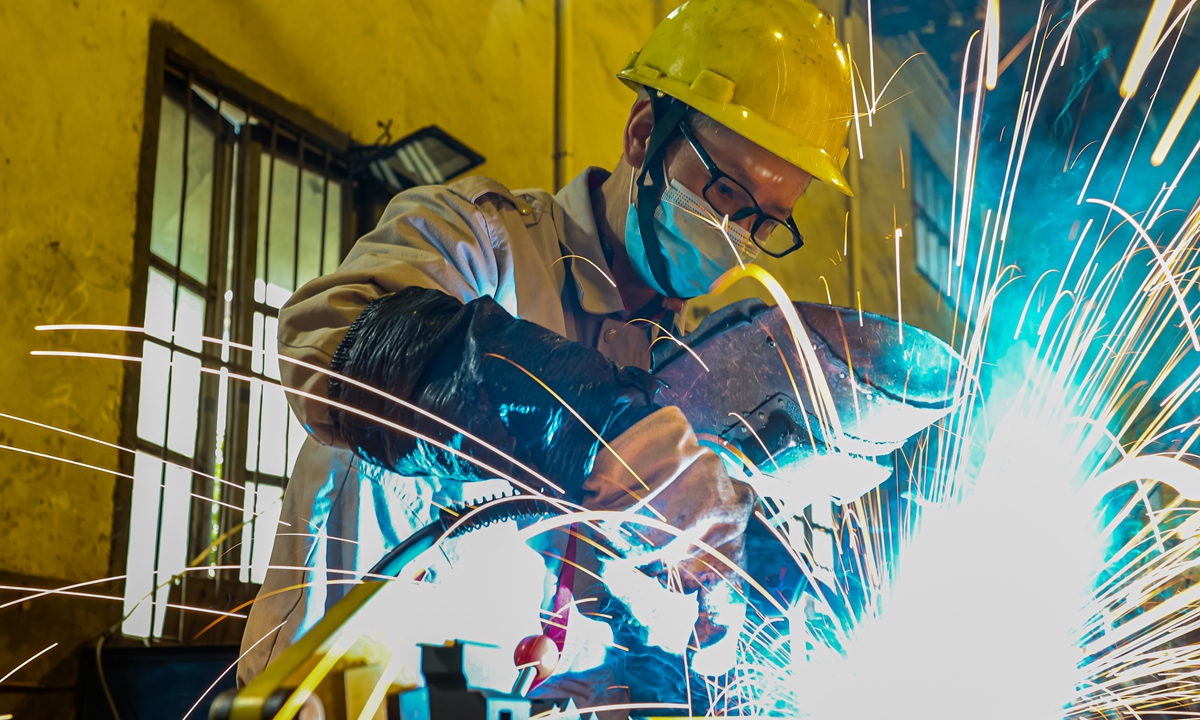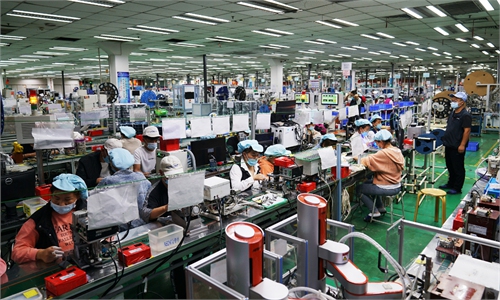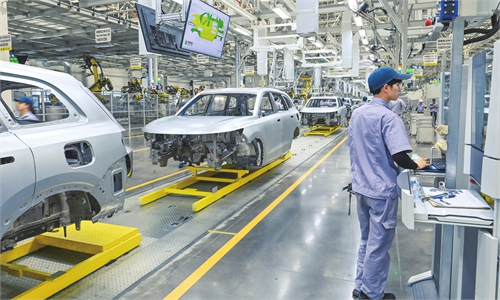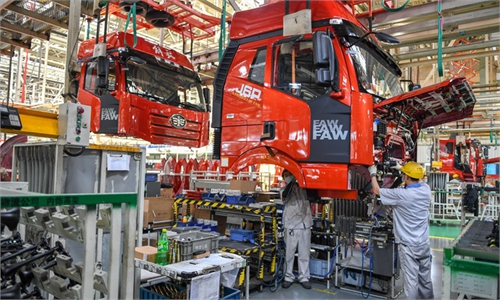China's factory activity still in contraction in Nov, but optimism grows: private survey

A worker makes auto parts in a factory in Ruichang, East China’s Jiangxi Province on November 30, 2022. China exported 337,000 motor vehicles in October, surging 46 percent year-on-year, data from the China Association of Automobile Manufacturers showed. Photo: cnsphoto
China's factory activity picked up slightly in November but remained in contraction territory due to COVID-19 outbreaks in multiple places across the country, while companies showed optimism for improved businesses next year, according to a private survey on Thursday.
The Caixin China Manufacturing Purchasing Managers’ Index (PMI) rose slightly to 49.4 in November from 49.2 in the previous month, beating expectations, but it still signaled a continuous contraction of the manufacturing sector for the fourth month in a row.
Factory output fell for the third month running in November, with the rate of reduction quickening from October but remaining mild overall. Companies frequently linked the decline to the impact of COVID-19 epidemics, according to the Caixin private survey.
New orders likewise fell further, though the rate of contraction eased to a marginal pace that was the weakest in four months. The pandemic, and subsequent difficulties in transporting goods, also weighed on foreign demand, which fell for the fourth month in a row.
"Both manufacturing supply and demand continued to shrink last month due to the spreading COVID-19 outbreaks and subsequent containment measures," said Wang Zhe, an economist at Caixin Insight Group.
The private survey was in line with the official PMI released by the National Bureau of Statistics on Wednesday, showing China's manufacturing PMI fell to 48 in November from October's 49.2.
The Caixin PMI mostly tracks small and medium-sized private-owned enterprises, while the official manufacturing PMI largely focuses on big and state-owned firms.
Although the gauge remained below its long-term average, businesses remained confident that the COVID-19 outbreaks would subside.
Companies generally anticipate output will rise next year, with optimism underpinned by expectations that the pandemic will ease, allowing operations to normalize. Notably, the degree of positive sentiment reached a three-month high, according to the private Caixin survey.
"The market is in urgent need of policies to promote employment and stabilize domestic demand," said Wang, suggesting that the government should further coordinate fiscal and monetary policies to expand domestic demand under the pressures of shrinking demand, weakening expectations and a supply shock.
"How to balance COVID-19 controls and economic growth has once again become a core issue. Top policymakers recently issued new requirements on optimizing COVID prevention and control. How local governments implement the instructions will become crucial," Wang said.
Global Times



